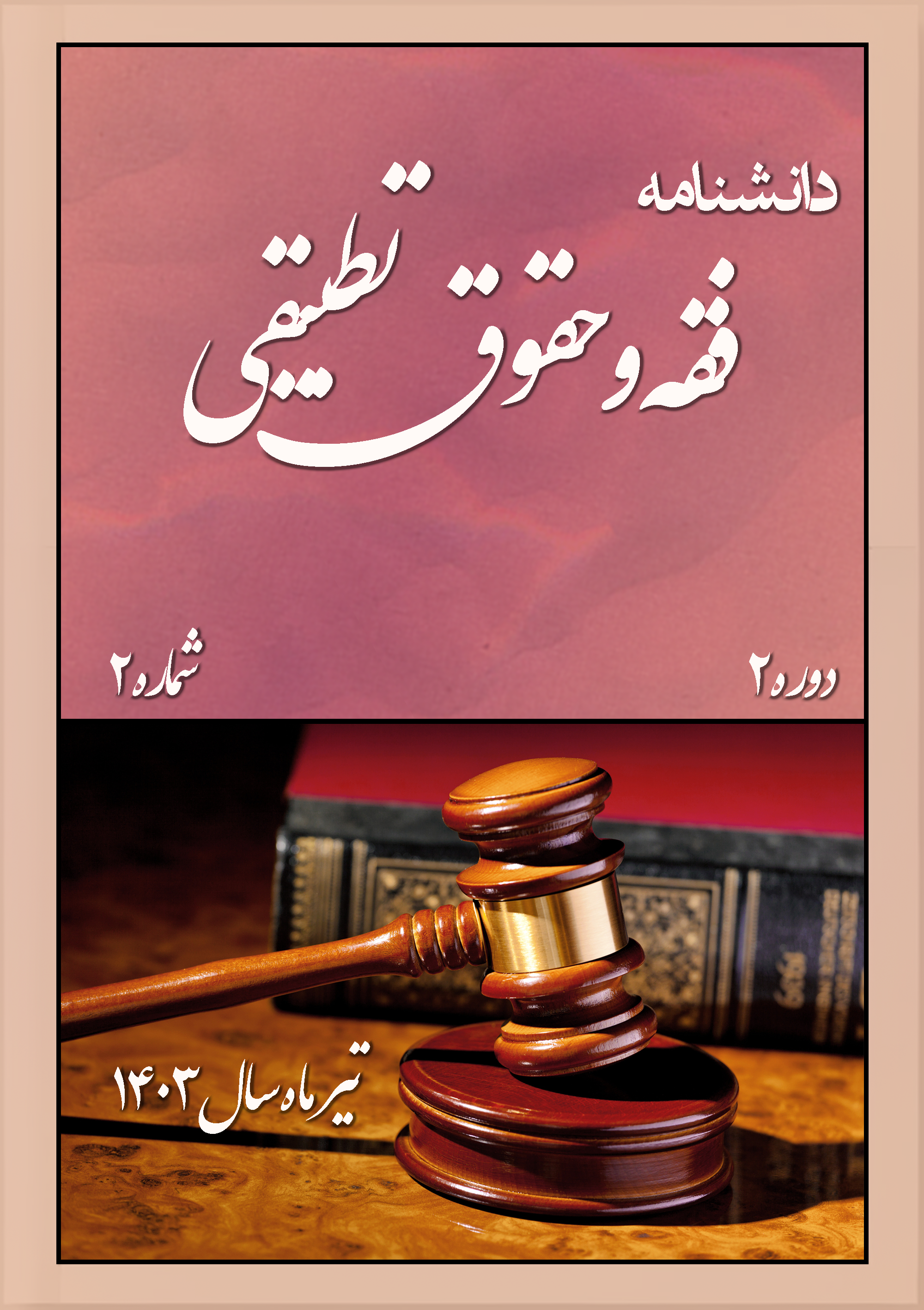Foundations of Dejudicialization and Its Instances in Iranian Criminal Law
Keywords:
Dejudicialization, Decriminalization, Mediation, Criminal Law, Judicial ProcedureAbstract
Dejudicialization is one of the most significant issues that has occupied the minds of criminal law scholars, particularly in light of the increasing criminal population. Criminal prosecution is a dual-faceted process that, on one hand, relates to the rights and freedoms of individuals in society, and on the other hand, concerns public order and security. The adjudication and resolution of disputes arising from criminal offenses generally fall within the jurisdiction of judicial authorities. Dejudicialization refers to the removal of adjudication and dispute resolution operations from the formal criminal proceedings process. The implementation of such dejudicialization may vary across different legal systems. The emergence of new conditions and exigencies has compelled criminal law to observe new issues and regulations in order to align with contemporary perspectives in judicial procedures. Among these are the fundamental principles governing punishments, which require criminal law to adopt and follow new approaches consistent with these principles. The present article aims to examine the theoretical foundations of dejudicialization and its instances within Iranian criminal law, as well as to identify the positive functions of dejudicialization within the judiciary. Methodologically, the study is applied in purpose and relies on a documentary research method through the examination of laws and authoritative sources. The collected data have been analyzed using a descriptive-analytical approach. Based on the findings, it can be concluded that dejudicialization reduces the heavy burden placed on the judicial system and decreases the volume of incoming cases to the courts. Ultimately, it facilitates the realization of justice in a simpler, more economical, and consequently fairer manner.
Downloads
References
Ashouri, M. (2009). Criminology Course Handout. Faculty of Law and Political Sciences, University of Tehran.
Ashouri, M. (2016). Criminal Procedure (Vol. 1). SAMT Publications.
Ejtenābi, M. (2018). A Criminal Review of Alternatives to Imprisonment. Qanoun Yār Scientific-Legal Quarterly, 2(8).
Goldūst Jūybārī, R., & Morādiān, M. (2015). Suspension of Sentencing in Iranian and French Law. Legal Research Quarterly(70).
Holman, J., & Quinn, J. F. (1995). Criminal justice: principles and perspectives. West publishing Company.
Homayi, K., & Digarān. (1998). Supervised Suspension in the World (Translated by H. Aqayi Nia ed.). Mizan Publishing.
Lottermoser, L., & Koulb, P. (2008). Essentials of French General Criminal Law (Translated by M. Rūḥ al-Amīnī. 1st ed.). Mizan Publishing.
Najafi Abrondābādi, A. H. (2003a). From Classical Criminal Justice to Restorative Justice. Specialized Journal of Razavi Islamic Sciences University(9 & 10).
Najafi Abrondābādi, A. H. (2003b). Restorative Justice Handout. Shahid Beheshti University Publications.
Niyāzpūr, A. H. (2013). The Agreed-Upon Nature of Criminal Procedure. Mizan Publishing.
Rāstād, M. (2017). Criminal Mediation. National Conference on World Scientific Research in Management, Accounting, Law, and Social Sciences,
Reẓā'ī, G. (2010). Strategies of Suspension and Prosecution in the Criminal Process. Mizan Publishing.
Taghipour, A., & Salīmi, V. (2018). The Impact of Criminological Ideas on Reducing Prosecution Cases. Criminal Law Research Journal, 9(1).
Downloads
Published
Submitted
Revised
Accepted
Issue
Section
License
Copyright (c) 1403 محسن مشکانی (نویسنده); عسل عظیمیان; علی چهکندی نژاد (نویسنده)

This work is licensed under a Creative Commons Attribution-NonCommercial 4.0 International License.










